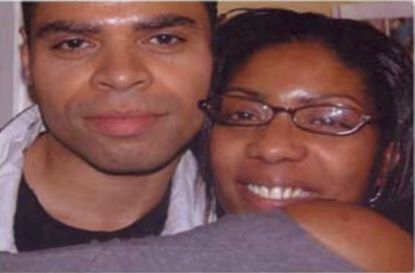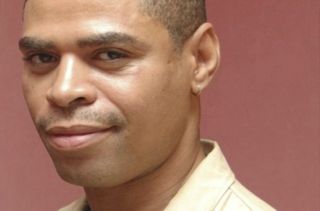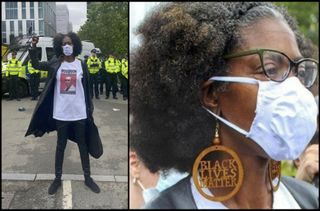‘I wonder if my brother begged for his life too’ Sister opens up about the ‘unnecessary force’ police used on her brother just like that used on George Floyd

Marcia Rigg, 56, is a member of the United Families & Friends Campaign and here she speaks about the unnecessary force UK police used on her brother, Sean, which contributed to his death in August 2008.
My brother, Sean, was charming, boisterous and handsome, and spent his teenage years making us laugh with his jokes. As the eldest of five, I was like his second mother, cooking dinner while our parents were working. When Sean was 20, he was diagnosed with paranoid schizophrenia. I’d always try to ensure he took his medication because, without it, he could become paranoid and hear voices.
I lived in fear that something might happen if he ever had an episode in public and none of us was there. As he got older, he started carrying his passport as ID, in case he became ill.
Sean was estranged from his son, which affected his mental health, but mostly he was able to live a normal, functioning life. He was a talented rapper and dancer, and a loving brother who always made time for me. He’d play me his music and ask me to cook his favourite Jamaican food. I cherish those memories because, shortly after 2am on 22 August 2008, my sister, Samantha, then 38, called.

‘Something’s happened to Sean,’ she said.
Staff at the hostel where Sean was staying had made several 999 calls over three hours, saying Sean was topless, karate-kicking and pacing around the garden. By the time police responded, Sean was in the middle of the road. He needed to get to hospital, but, instead, police arrested him, handcuffed him and restrained him face down. For seven minutes, almost as long as George Floyd, an officer applied pressure to his neck area and left shoulder.
When Sean arrived at Brixton police station, south London, he was in a collapsed state. Officers detained him in a caged area, and a doctor said Sean was having a heart attack. He was pronounced dead at hospital. It didn’t make sense to us. Despite his mental-health issues, Sean was physically healthy, with no history of heart problems.
GoodtoKnow Newsletter
Parenting advice, hot topics, best buys and family finance tips delivered straight to your inbox.
An investigation by the Independent Police Complaints Commission found officers acted ‘reasonably and proportionately’. But a later inquest ruled that Sean died in the police station from partial positional asphyxiation and cardiac arrest, and officers had used ‘unnecessary force’, which contributed to his death. The investigation was revealed to have been shambolic, with false statements and missing CCTV, yet no one was held accountable.
I campaigned for cameras in police vans and, in 2015, won the battle. I’d now like prone restraints and choke holds to be eradicated. But our judicial system still needs an overhaul.
In 1993, when Stephen Lawrence was murdered, the Metropolitan Police was found to be ‘institutionally racist’. Yet, nothing changed. For more than 400 years, black people have suffered. We were once enslaved, and now we’re killed by people employed to protect us.

I struggle to understand how we’re still here in 2020, fighting for equality in a country we helped to build and after seeing the footage of George Floyd’s death, I wondered if my brother had begged for his life, too.
Now, the world is awake and we’re witnessing an uprising so full of anger and pain, even a global pandemic won’t hold us back. This is a moment in time that everyone must seize, and we cannot stop now because until we get justice, how will we ever find peace?
READ MORE: How and when to start talking to children about racism
What is Black Lives Matter?
Protesters have been taking a knee with their fists punching the air for eight minutes and 46 seconds, to symbolise the time it took George, 46, to die.
Even though one of the officer’s responsible, Chauvin, has been charged with second-degree murder, George isn’t the first victim of an inherently racist system.
It’s happening in the UK, too. This Morning's, Alison Hammond, has also spoken out about Black Lives Matter and it's no wonder as in the UK black people are more than twice as likely to die in police custody.
Yet, since 1969, no such deaths have been successfully prosecuted. Black people face persecution and inequality – be it racial insults and violence or limited opportunities and the underfunding that comes with prejudice - everyday.
It can no longer be ignored. The Black Lives Matter campaign is clear that just because it says ‘black lives matter’, it doesn’t mean other lives do not.
Of course everyone matters, but there’s a reason why, right now, the focus is on race.
-
 Heard of the '9-minute theory'? Find out how to use with kids of all ages (it might help ease the 'mum guilt' that creeps in)
Heard of the '9-minute theory'? Find out how to use with kids of all ages (it might help ease the 'mum guilt' that creeps in)The 9-minute theory has sparked a lot of conversation online, as mums share how it makes their day easier and improves relationships with their children.
By Lucy Wigley Published
-
 Most popular Tonies ever: 11 bestsellers, plus one we predict will be huge
Most popular Tonies ever: 11 bestsellers, plus one we predict will be hugeFrom Igglepiggle to Encanto, these are the bestselling Tonies to help kickstart an epic audio character collection
By Sarah Handley Published